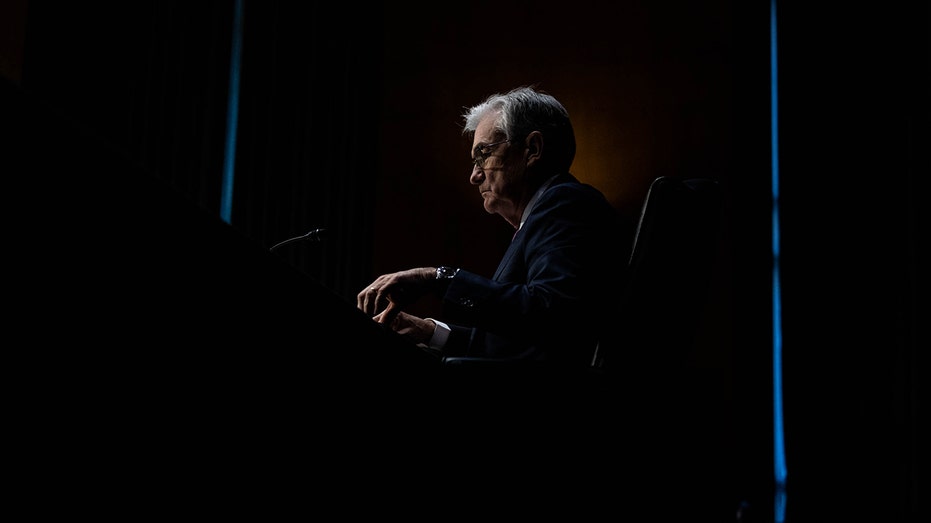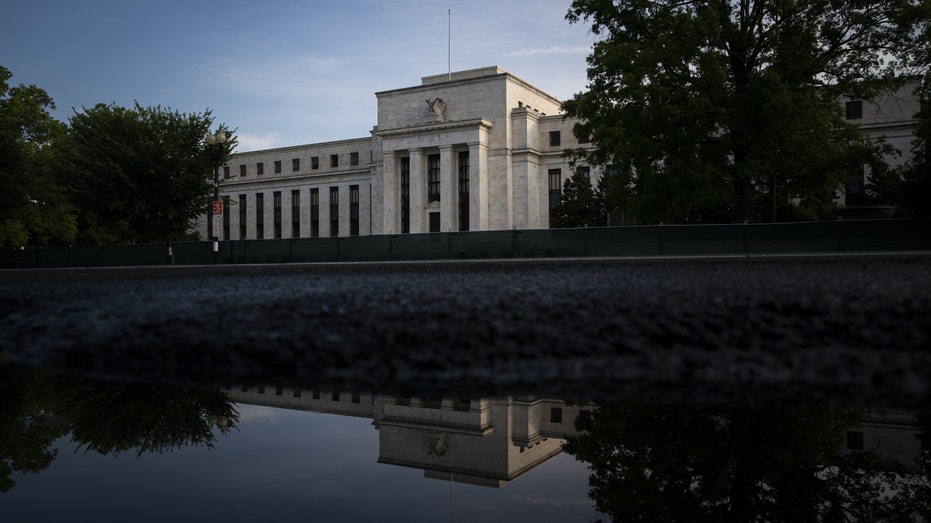Midterm election results? Markets are more worried about the Federal Reserve
Markets paying close attention to Fed amid recession fears
Economy top of mind for voters on Election Day
Fox News contributor Brian Brenberg discusses Americans' top concerns with voters in New York.
Forget about the midterm elections.
Wall Street investors are paying much closer attention to the Federal Reserve than the makeup of the next Congress as they try to gauge the outlook for the U.S. stock market.
Markets typically perform well under a divided government – which is the most likely scenario in 2023 with Republicans expected to take control of the House and the Senate still up for grabs – because gridlock decreases the likelihood of Congress passing sweeping fiscal legislation.
But there are bigger concerns at play this year, including unrelenting inflation, an aggressive Federal Reserve and the increased likelihood of a recession.
DEMOCRATS SLAM 'DANGEROUS' FED RATE HIKES, WARNING OF WIDESPREAD JOB LOSSES

Federal Reserve Chairman Jerome Powell speaks before the Senate Banking, Housing, and Urban Affairs Committee on Jan. 11, 2022, in Washington, D.C. (Graeme Jennings-Pool/Getty Images / Getty Images)
"Inflation, monetary policy, recession risk and geopolitics have been far more important drivers of equity market moves than the potential for modest changes in US fiscal policy," Goldman Sachs strategists wrote in an analyst note.
Compared to previous election cycles, politics are no longer taking center stage in discussions with investors, according to the Goldman analysts. Instead, Wall Street is focused on high levels of federal debt, which recently surpassed $31 trillion, high inflation and rising interest rates.
Wells Fargo analysts echoed that sentiment in a note Wednesday, arguing that Federal Reserve monetary policy and the state of the economy will play a bigger role in the market's health.

The Federal Reserve Board Building in Washington, D.C., July 6, 2022. (Al Drago/Bloomberg via Getty Images / Getty Images)
"The economy’s performance and the Federal Reserve’s policies to shape its path are likely to matter more than the election results to investment returns, in our view," the strategists said. "This greater importance of the economy and Fed policy remains the focus of our guidance."
FED'S POWELL SAYS IT'S 'PREMATURE' TO PAUSE INTEREST RATE HIKES: 'A WAY TO GO'
Fed policymakers have already approved six consecutive rate hikes, including four back-to-back 75-basis-point increases, and have shown no signs of slowing down. At the central bank's latest meeting in November, Chairman Jerome Powell indicated that policymakers will need to raise rates higher than initially expected as inflation proves harder to tame than expected.
It's very premature, in my view, to talk about pausing our rate hikes. We have a way to go," Powell told reporters, adding, "And incoming data since our last meeting suggests that the ultimate level of interest rates will be higher than previously expected."

Voters fill out their ballots at a polling site in the Brooklyn Museum, Tuesday, Nov. 8, 2022, in New York. (AP Photo/John Minchillo / AP Newsroom)
With the benchmark federal funds rate now at a range of 3.75% to 4% – well into restrictive territory – Powell said the focus on rate hike speed is less important than the question of how long rates should be held in restrictive territory.
The Fed's efforts to cool the economy and wrestle inflation closer to its 2% target marks the most aggressive tightening campaign since the 1980s.
CLICK HERE TO READ MORE ON FOX BUSINESS
But the fight against inflation carries a potential risk of recession, and a growing number of economists and Wall Street firms are forecasting a downturn this year or next as the Fed tries to thread the needle between curbing inflation without crushing growth.





















